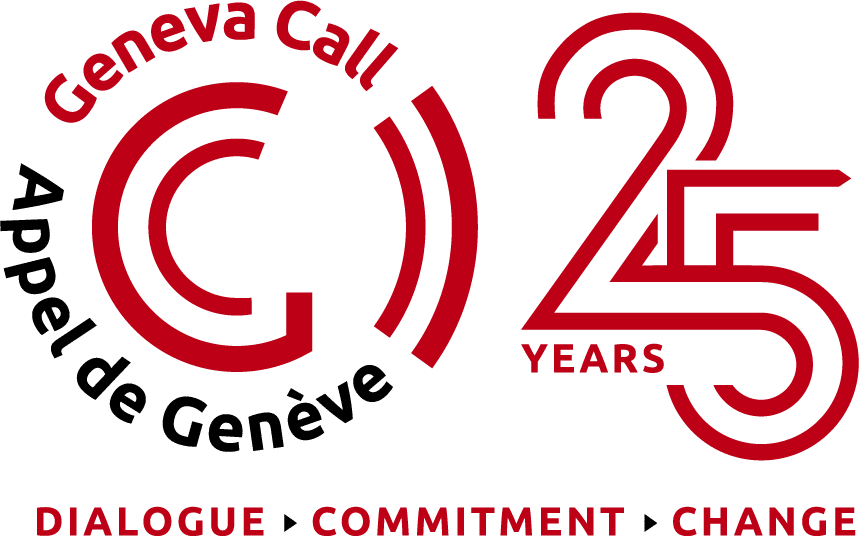Burma/Myanmar: update of Geneva Call’s latest activities on gender equality and the prevention of sexual violence
21 June 2016
Since 2012, Geneva Call has focussed on expanding and intensifying its gender work with armed non-State actors (ANSAs) involved in the protracted conflict in Burma/Myanmar.
Geneva Call continues to support implementation measures and monitoring of the progress and compliance with respect to the Deed of Commitment signed by the Karen National Union (KNU) in 2013, in which it declared its intention to prohibit sexual violence and pursue gender equality.
In the midst of an intensive peace process, the KNU has faced challenges in disseminating the rules contained in the Deed of Commitment. In February, to help overcome this, Geneva Call – with KNU facilitation and in close co-operation with Save the Children – gave a training session on the Deed of Commitment for one of the Brigades in the KNU’s armed wing, the Karen National Liberation Army (KNLA). The training session was the first of its kind to target 40 battalion-level officers within a single brigade. Its success sparked planning by Geneva Call, the KNU and Save the Children to replicate it in other brigade areas.
The KNU and Geneva Call also shared concerns about the insufficient community-level understanding of the KNU’s obligations under the Deed of Commitment. To address these, Geneva Call and its partner organization, the Karen Women’s Organisation (KWO), staged a workshop in February to train 39 Karen women activists from a range of geographic areas. These women will in turn raise awareness of the Deed of Commitment at the community level upon return to their homes.
Concurrently, Geneva Call has extended its engagement on gender issues with other armed non-State actors (ANSAs). Among non-signatory ANSAs, Geneva Call deepened its engagement with the New Mon State Party (NMSP) in early 2016. Closely cooperating with the Mon Women’s Network (MWN), Geneva Call conducted a gender workshop in Mon State for 30 NMSP leaders in March. This allowed them to study the Deed of Commitment and carefully consider NMSP policies and practices alongside its standards. Geneva Call and MWN are now discussing how best to build on that workshop.
Concerned that the lack of women contributing to political decisions in Burma/Myanmar acts as a significant barrier to gender equality, Geneva Call has sought to deepen its understanding of this issue. While under-representation of women pervades Myanmar’s political life, Geneva Call’s mandate directs its focus towards ANSAs in general and the ongoing peace process in particular. At a March meeting in Chiang Mai, convened by Geneva Call for women leaders from ANSAs and ethnic civil society organizations, participants shared their experiences and perspectives, identifying specific challenges that women face in their milieu. The women then explored how these might be overcome and how Geneva Call might better support efforts to bring about change.
Over the next few years, and in close cooperation with its partners, Geneva Call will continue its work with signatory ANSAs as well as consolidate and extend its engagement to other ANSAs.

